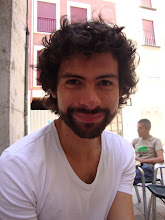One of the hallmarks of a man of self-esteem, who regards the universe as open to his effort, is the profound pleasure he experiences in the productive work of his mind; his enjoyment of life is fed by his unceasing concern to grow in knowledge and ability—to think, to achieve, to move forward, to meet new challenges and overcome them—to earn the pride of a constantly expanding efficacy
A different kind of soul is revealed by the man who, predominantly, takes pleasure in working only at the routine and familiar, who is inclined to enjoy working in a semi-daze, who sees happiness in freedom from challenge or struggle or effort: the soul of a man profoundly deficient in self-esteem, to whom the universe appears as unknowable and vaguely threatening, the man whose central motivating impulse is a longing for safety, not the safety that is won by efficacy, but the safety of a world in which efficacy is not demanded.
Still a different kind of soul is revealed by the man who finds it inconceivable that work—any form of work—can be enjoyable, who regards the effort of earning a living as a necessary evil, who dreams only of the pleasures that begin when the workday ends, the pleasure of drowning his brain in alcohol or television or billiards or women, the pleasure of not being conscious: the soul of a man with scarcely a shred of self-esteem, who never expected the universe to be comprehensible and takes his lethargic dread of it for granted, and whose only form of relief and only notion of enjoyment is the dim flicker of undemanding sensations.
Still another kind of soul is revealed by the man who takes pleasure, not in achievement, but in destruction, whose action is aimed, not at attaining efficacy, but at ruling those who have attained it: the soul of a man so abjectly lacking in self-value, and so overwhelmed by terror of existence, that his sole form of self-fulfillment is to unleash his resentment and hatred against those who do not share his state, those who are able to live—as if, by destroying the confident, the strong and the healthy, he could convert impotence into efficacy.








No hay comentarios:
Publicar un comentario